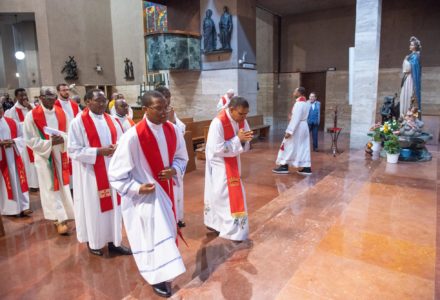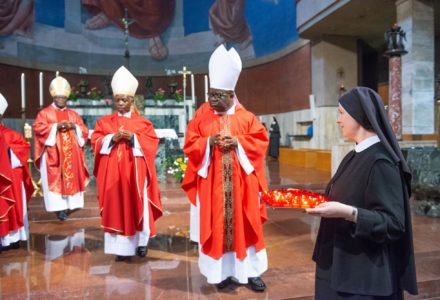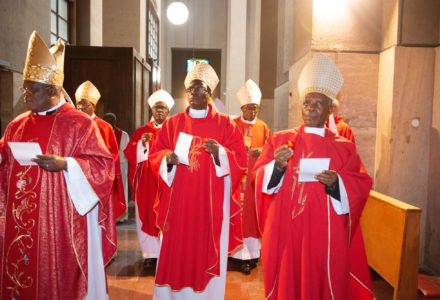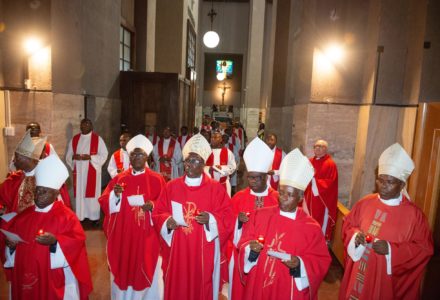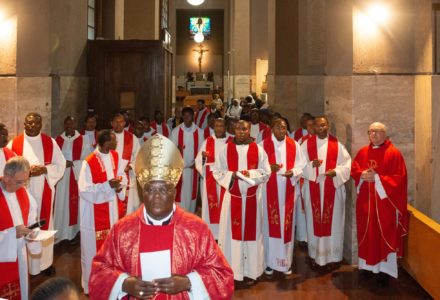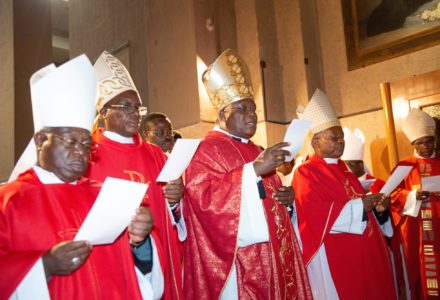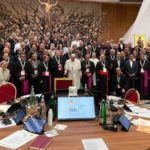The Association of Central African Episcopal Conferences (ACEAC) held a consultation on alternative paths to peace in the Great Lakes region in Rome at the general house of the Priests of the Sacred Heart of Jesus (SCJ).
The Cardinals, Archbishops and Bishops of the Permanent Committee of the Association of Episcopal Conferences of Central Africa (ACEAC), representing the Churches of Burundi, the Democratic Republic of Congo and Rwanda, held in Rome, from 16 to 18 October 2023 in the community of the General House of the Priests of the Sacred Heart of Jesus (SCJ), a consultation on alternative paths to peace in the Great Lakes region.
Intended as a pilgrimage to the Holy City, this consultation took place on the sidelines of the Synod on synodality which brought together the delegates of the Universal Church around the key word “Expand the space of your tent” (Isaiah 54: 2).
It is worth remembering that the Great Lakes region is going through a security situation marked by multifaceted wars which continue to cause millions of deaths, internally displaced people, and refugees. Driven by pastoral concern, the Bishops expressed their deep conviction to see the people of Burundi, DR Congo and Rwanda live together in security, collaborating among themselves and with the Governments for the end of conflicts between States and between Communities. They thus formulated their vision according to which “the peoples of the Great Lakes, relieved of their suffering, assume their diversity, live in security, collaborate among themselves and with the authorities for good governance, the dignity of each person, the consolidation of peace and integral human development.”
For this, they are committed to strengthening awareness of a destiny originally bridged between brothers and sisters of the entire Great Lakes region, even of all humanity. This obviously requires the revitalization of pastoral structures and pastoral commissions to accentuate the culture of peace and education in active non-violence in order to prevent the escalation of conflicts, or to manage them through positive approaches to regulating disputes. The same goes for the multiplication of peace initiatives which engage populations beyond ethnic, ideological, and territorial borders.
In their final declaration, they urged all those who, from far or near, continue to sow death and division in the region, to listen to the Church’s call for universal solidarity, and to let themselves be guided by the search for integral human development.


